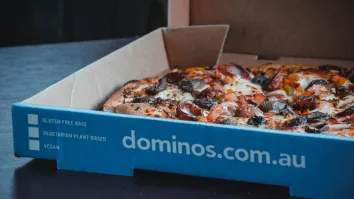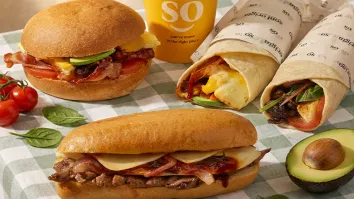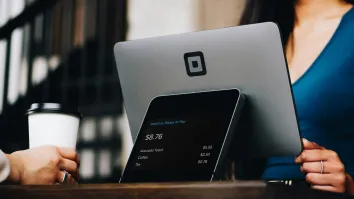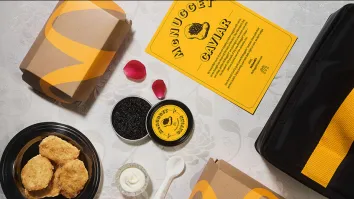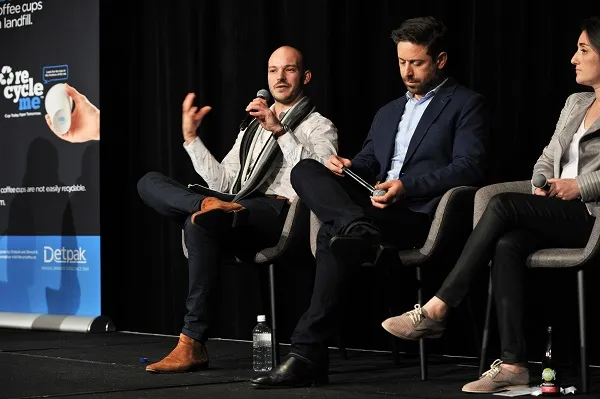
An “incredibly synergistic” partnership: how QSRs can maximise profits from delivery services
Executives from Deliveroo, foodora, Menulog and Uber Eats further emphasise their value propositions to restaurant brands.
Looking to quell concerns about their services, aggregators were unified in stressing the value they bring to brands during a panel session at the 2018 QSR Media Detpak Conference and Awards.
“The relationship between QSRs and online delivery services is an incredibly synergistic relationship when managed correctly,” Menulog ANZ Managing Director Alistair Venn said. “Menulog takes a highly consultative approach to all brand partnerships, working with individual businesses to provide services including customer engagement, marketing, technology and logistics. With a large established network of more than three million active customers, we provide these services to brands with no capital expenditure, allowing them to efficiently and cost effectively access new customers via an additional online channel, driving incremental acquisition.”
“It's a complex thing to get quality food to a consumer in under 30 minutes, which we achieve most of the time. We want to do it reliably, which requires enormous amounts of operational support on the ground behind the technology platform that drives it. We want you to focus on what you do best, which is making great food,” Uber Eats ANZ General Manager Jodie Auster added.
Asked about their respective differentiators, panelists offered various takes on utilising their technologies and scale.
“Our engineering teams, which are growing by the day globally, are constantly working on maintaining and developing new machine learning algorithms that drives everything we do behind the scenes; predictive and historical algorithms [that] help get that food to you faster, to understand the different weather conditions, how it differs across times of the day, what are services like on a Tuesday night versus a Friday night and how that affects in-restaurant (sales),” Deliveroo Australia Country Manager Levi Aron said.
“We have a lot of different brands that have a lot of different technologies and by collecting all those brands, we have found the best practices,” foodora Australia Chief Executive Officer Jeroen Willems said, noting that their service is currently utilised in 40 different countries across five continents. Their company, however, recently announced they are shutting down their Australian operations.
Uber Eats noted the advantage of being part of the Uber umbrella, mentioning the latter’s almost 4 million rider base as a source of customer acquisition.
“We [have] the opportunity to leverage both brands in the market and that's incredibly powerful. We deeply understand how cities move and we are thinking about that in many ways every day. We're not just thinking about road transport and delivery of food, we're thinking about…how [to] innovate not just in [the] food industry but in the entire ecosystem of a city,” Auster said.

Uber Eats' Jodie Auster and Menulog's Alistair Venn
Menulog’s focus is on the scale of its businesses, with Australia’s only ‘hybrid’ marketplace and delivery model, which services more than 90 percent of all delivery addresses across the country.
“Having first pioneered the market in Australia 12 years ago, we’re in the fortunate position to have built an incredibly strong food delivery marketplace business, which connects more than 10,200 restaurants with their own drivers, with more than three million active customers. With this solid foundation, we’ve recently launched a delivery service that not only provides a new option for restaurants without their own drivers, but also greater choice for customers," Venn said.
Sustainable service fees
In response to a question about feedback on service fees, some panelists noted that restaurant brands need to ensure their familiarity with the delivery system to understand the costs behind the aggregators’ services.
“We want to work together with restaurants and we want to take the time to explain to everybody how exactly to make money on the business. At the same time, we train ourselves and [our] people to make the restaurants understand what exactly it costs them to do the delivery,” Willems said.
“We meet regularly with our restaurant partners across Australia, take on feedback and adapt where need be, helping us build the right support, technology, systems and financial modelling to enable a truly sustainable business model for the restaurants,” Aron said.
“It's not in our interests to have an unsustainable fee structure. We all want to stay in business and partner with you for a really long time,” Auster added. “Our most successful restaurant partners are the ones who deeply understand the way their businesses work and the economics of their businesses.”
Venn surmises: “Again this comes down to a consultative approach. We have worked with restaurant partners to deliver profitability for all parties. We work with restaurant partners to help them set delivery fees, delivery radiuses, minimum order rates and more. Led by the wealth of data and insight we can provide to partners, these elements are constantly massaged in order to optimise our partners’ businesses, fit for purpose for that individual brand to ensure that every transaction is a profitable one for the partner.”
Providing insights through data
They also offered their thoughts on how to specifically help QSRs with the data they have gathered.
“Data is central to everything that we do. Our QSR team provide restaurants with insights and strategies that are born out of our live and constant data: from customers on how the food is, whether there's an issue with the food being cold or what were deliveries like,” Aron said. “We work with QSRs to continuously to share as much data as possible, in a proper way, so they can leverage for their business and further drive the instrumentality of orders that Deliveroo drives to their chain and sites around Australia.
“Philosophically, we are very in favor of sharing the customer with our partners. But legally, it's getting increasingly more difficult to do that. We're constantly talking about how we can do it; how to source useful information that's not through the lens of an engineer's mind in San Francisco but in a way that is really quick and easy and useful for you,” Auster added.
Venn says another use of data is for QSRs to determine the trends that are specific for their brands and provide franchisees and restaurateurs with insights that they may not have known or don’t have access to as a value add to the service Menulog provides.
“The really interesting insights are those that you would not have access to if you ran your own delivery channel in isolation - these are the kind of broader trends that we see across the suburbs and local areas where stores are situated. We work very closely with QSRs to develop highly customised reporting to help them evaluate performance and gain insight for future growth. This can be everything from where to establish new store locations, to where to trial different types or meals or cuisines, down to menu optimisation based on local population and preference. There is a huge amount that we can do in this space, which again is all provided as a value-add service for our QSR partners,” he concludes.


